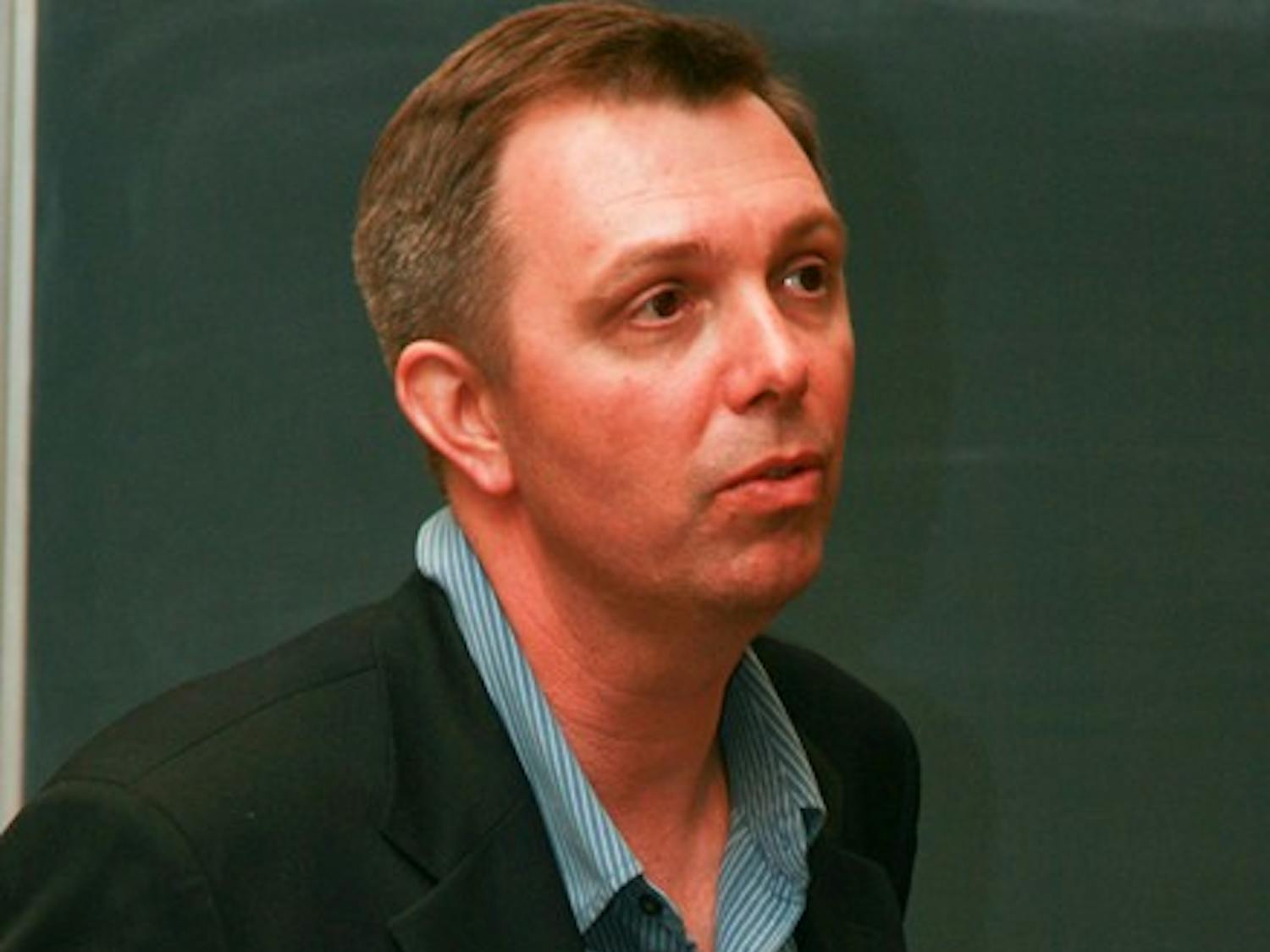Wilson recalls abduction in lecture
Elisabeth Ericson / The Dartmouth Staff Simon Wilson, the Middle East bureau chief for the British Broadcasting Company, hoped that he would never have to open the file on his computer desktop labeled, "Worst Case Scenario." But on March 12, 2007, with the abduction of BBC correspondent Alan Johnston in the Gaza strip, Wilson's "worst case scenario" became a reality. Wilson said the rescue effort was the "biggest challenge of my career." He described this and other experiences he has had while reporting in Israel, Iraq and Lebanon during a lecture, titled "Reflections in the Middle East," given before a large audience of students, faculty and community members in the Rockefeller Center on Thursday night. The talk marked the first time Wilson has spoken publicly about the details of his involvement in Johnston's rescue. "Despite my British reserve, I might get a little emotional," Wilson told the crowd. Wilson presented actual messages that he exchanged with Johnston's captors, members of the militant Army of Islam group, describing the tactics he employed, like consistently using Johnston's name to personalize the situation. The accurate use of language was a theme that pervaded Wilson's discussion. "In the Middle East, the use of language needs to be very, very precise," Wilson said. Particularly sensitive word choice includes the term "terrorist" and the distinction between wall, fence and barrier in the context of the Israeli-Palestinian border, Wilson said. During a question and answer period following the lecture, Jordana Beeber '08 challenged Wilson on some of the word choices the BBC has made in its coverage of the Israeli-Palestinian conflict.






